24 Hours Hotline: +86 137-3541-1378
Email:[email protected]
24 Hours Hotline: +86 137-3541-1378
Email:[email protected]
Hangzhou Weather
Hangzhou has a humid subtropical climate, characterized by mild winters and hot, humid summers. Average annual temperatures typically range between 16°C and 18°C, with highs reaching over 33°C in peak summer months. The city experiences abundant rainfall, especially from April to June, due to the East Asian monsoon. Humidity levels are generally high year-round, often above 70%, making the air feel warmer in summer and chillier in winter. Thanks to its proximity to rivers and lakes, Hangzhou enjoys a lush natural environment, but the humidity can make the atmosphere feel misty and dense, particularly in spring and early summer.
Best Time to Visit Hangzhou
Hangzhou experiences four distinct seasons, each offering a unique charm to visitors. Spring (March to May) brings blooming flowers, fresh greenery, and pleasant temperatures, making it ideal for strolling around West Lake and exploring tea fields. Summer (June to August) can be hot and humid, but it’s the season when lotus flowers bloom across the lake and the lush Longjing tea plantations are at their peak. Autumn (September to November) is often considered the best time to visit, with comfortable weather, clear skies, and vibrant foliage reflecting in the water. Winter (December to February) is quieter and more serene—though temperatures drop, West Lake becomes tranquil, and occasional snowfall adds a poetic beauty. No matter the time of year, Hangzhou’s natural landscapes and cultural atmosphere offer a different kind of beauty with each season.
Hangzhou Spring (March, April, May)
Spring in Hangzhou runs from March through May, bringing a gradual warm-up from winter chill. Temperatures typically hover around 20°C, though fluctuations are common, especially early in the season. Rainfall is frequent during these months, with precipitation levels climbing steadily—expect wet afternoons and light fog rolling off the hills. After each shower, the city feels like it's been freshly painted: West Lake shimmers under the mist, and the gardens come alive with color. Spring is the ideal time to wander scenic paths, rent a bicycle, or take a calm boat ride across the lake.
What to Wear in Hangzhou Spring
Light outerwear like a hoodie, windbreaker, or thin sweater is usually enough for daytime. Long pants or jeans keep things comfortable, and don’t forget to bring an umbrella—spring showers can surprise you.
Seasonal Activities in Hangzhou Spring
Wander along Su Causeway surrounded by soft willow branches and flowering peach trees, a scene straight out of a watercolor painting. In places like Prince Bay Park, cherry blossoms, tulips, magnolias, and peonies make spring feel like a festival of blooms.
Visit the Longjing tea fields in Meijiawu or Dragon Well Village, where local farmers begin their spring harvest. Watch them hand-pick fresh leaves, learn the traditional roasting process, and sip green tea right at the source. The China National Tea Museum nearby offers interactive exhibits and tea-tasting experiences.
Scenes of West Lake in Spring
Dawn at Su Causeway in Spring – Peach blossoms line the walkway, and the fresh leaves begin to unfurl. The air is filled with birdsong, and a walk at sunrise offers a peaceful start to any day.
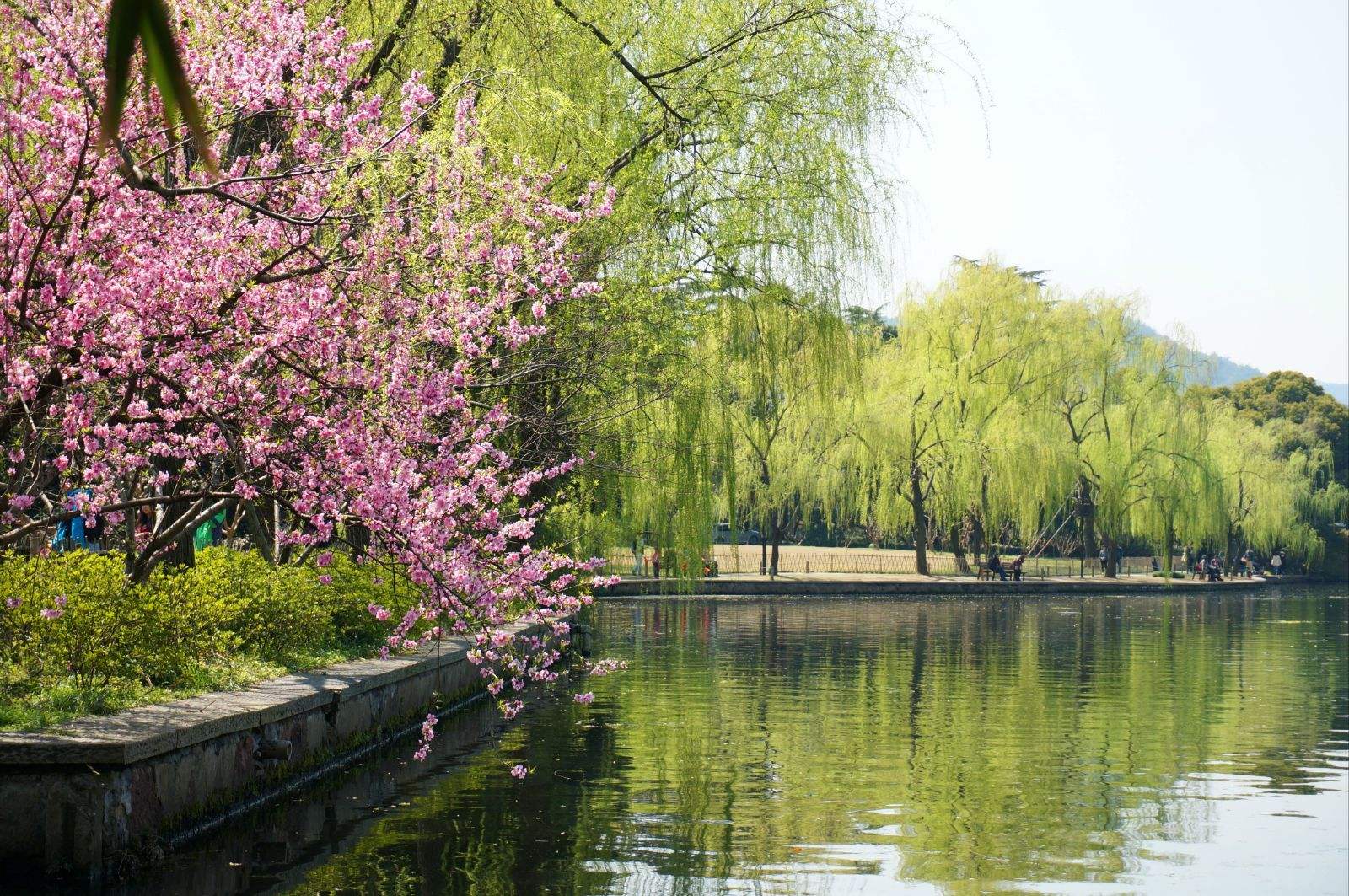
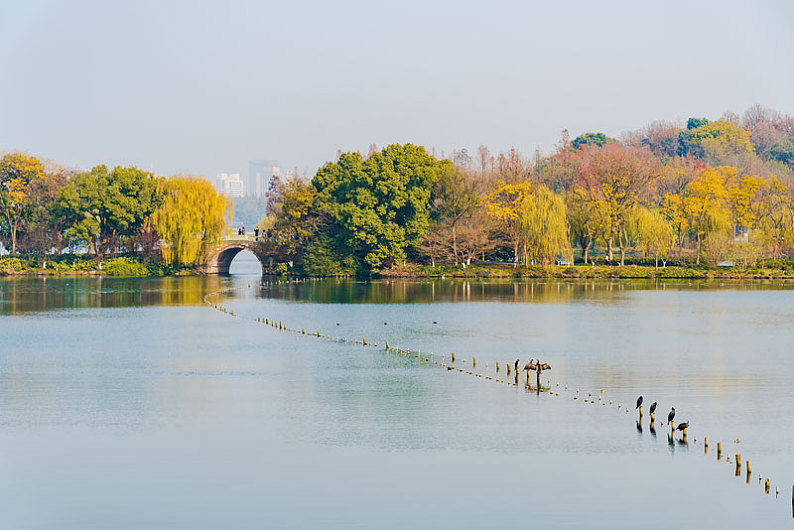
Fish Viewing at the Flower Pond – Carp glide through clear water while pavilions are framed by blooming peonies. April is the peak season for these flowers, and white peacocks sometimes make an appearance in the garden.
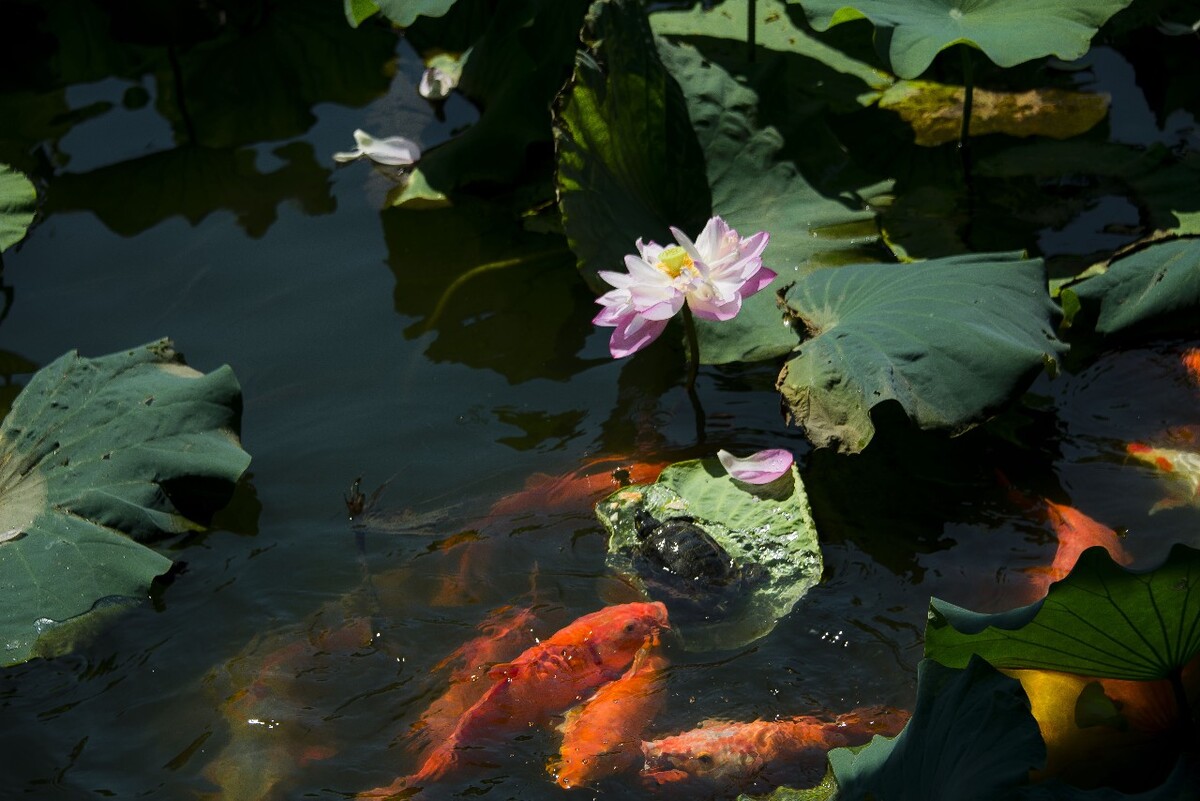
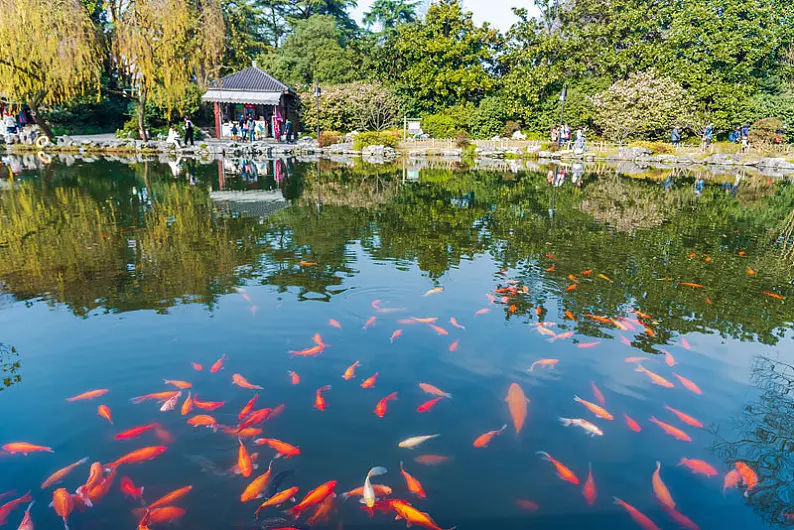
Orioles Singing in the Willows – This former royal garden is quiet and serene, perfect for a slow stroll. In spring, warblers call from the willow branches while gentle breezes carry the scent of new leaves.
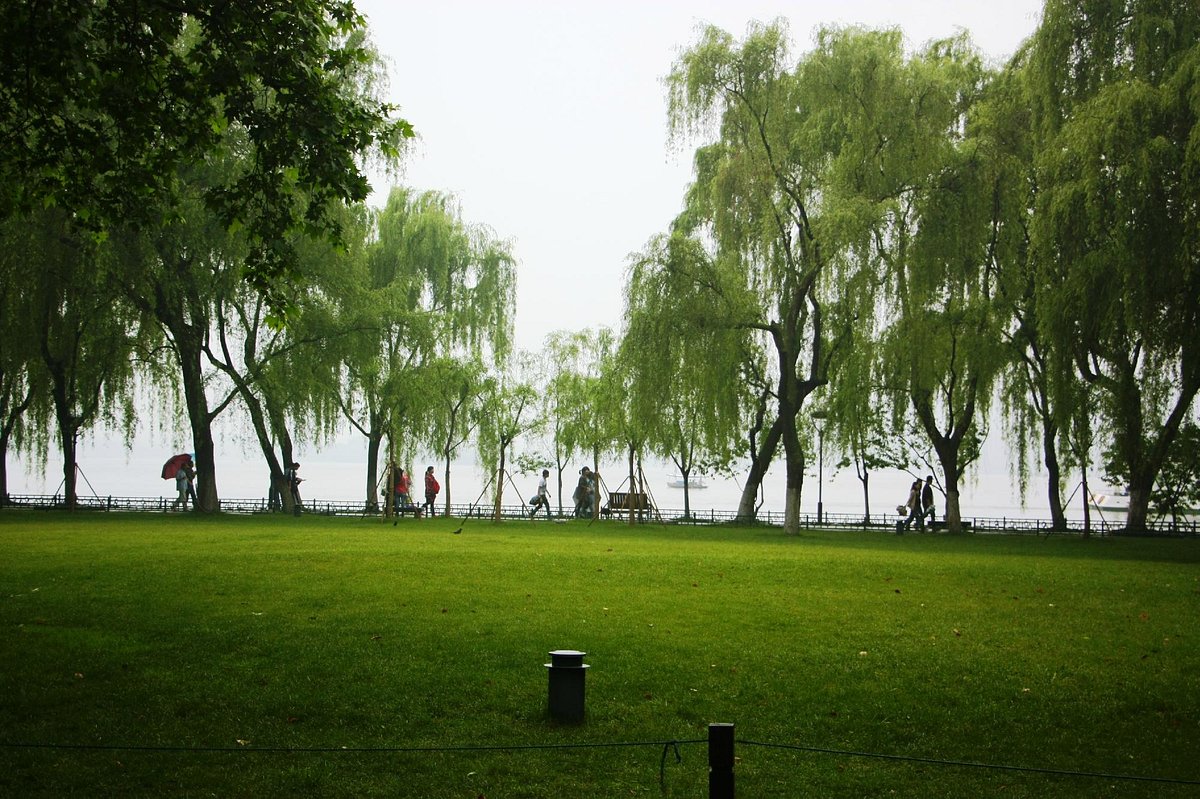
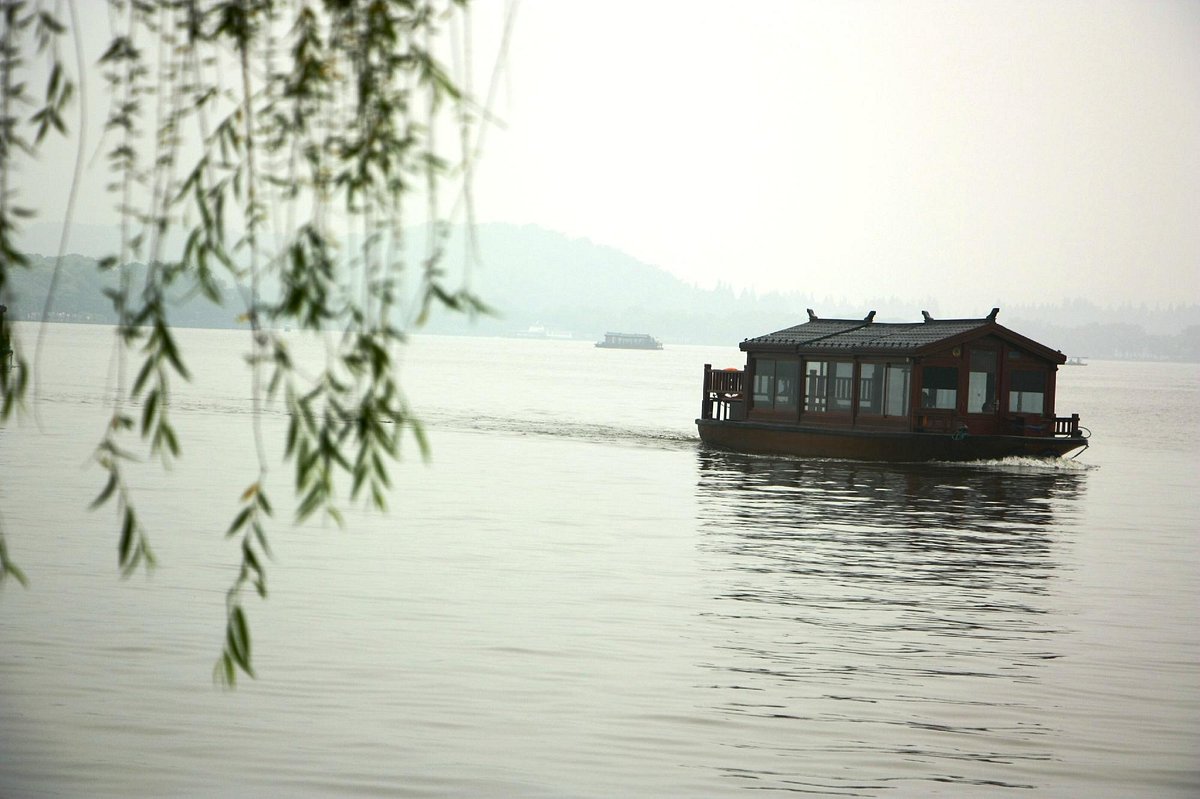
Dream of the Tiger Spring – Renowned for its fresh mineral water, Tiger Spring is especially tranquil in springtime. Locals come here to draw water or brew tea. A cup of Longjing made with this spring water is a true Hangzhou experience, prized for its smooth flavor and clarity.
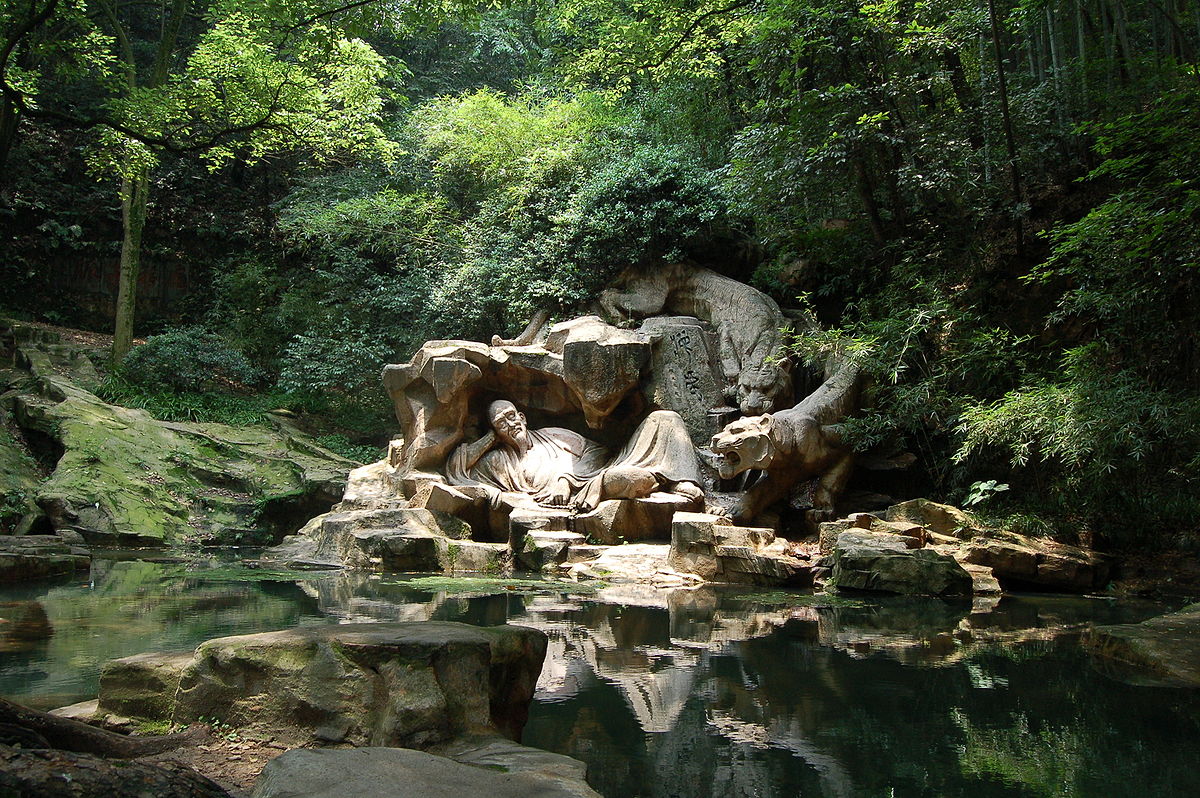

Hangzhou Summer (June, July, August)
Summer in Hangzhou, stretching from June to August, is hot, humid, and full of energy. July tends to be the hottest month, with daytime highs frequently soaring past 33°C and sometimes brushing up against 40°C. While the rains are lighter than in spring, sudden downpours and the occasional typhoon—especially in late August—can still catch you off guard. Humidity levels stay high, and you’ll often see the city wrapped in a haze of heat and mist. But don’t let that stop you—this is when Hangzhou is bursting with vibrant greens, lotus blossoms, and long, glowing sunsets over West Lake.
What to Wear in Hangzhou Summer
Go light and breathable—shorts, cotton shirts, dresses, and sandals are all great. Sunglasses, hats, and sunscreen are must-haves, and staying hydrated is key. Always good to keep a small umbrella or raincoat handy just in case of a summer shower.
Seasonal Activities in Hangzhou Summer
Stroll through lotus-filled gardens around West Lake, especially at Quyuan Fenghe where the lotus ponds stretch as far as the eye can see. The air carries a soft floral scent, and the view of pink blooms floating among emerald leaves is classic summer Hangzhou.
Escape the heat by heading to nearby water towns like Wuzhen or Xitang. With shaded alleyways, flowing canals, and traditional stone bridges, they offer a slower, cooler vibe for the season.
Wander through Xixi National Wetland Park, where waterways reflect layers of greenery and dragonflies skim over the surface. It's calm, refreshing, and feels like stepping into nature’s air conditioner.
Scenes of West Lake in Summer
Lotus in the Breeze at Quyuan Garden – Walkways zigzag through a sea of lotus, their leaves gently rustling under the sun. More than 100 species of lotus fill the ponds, and the occasional breeze makes the petals dance.
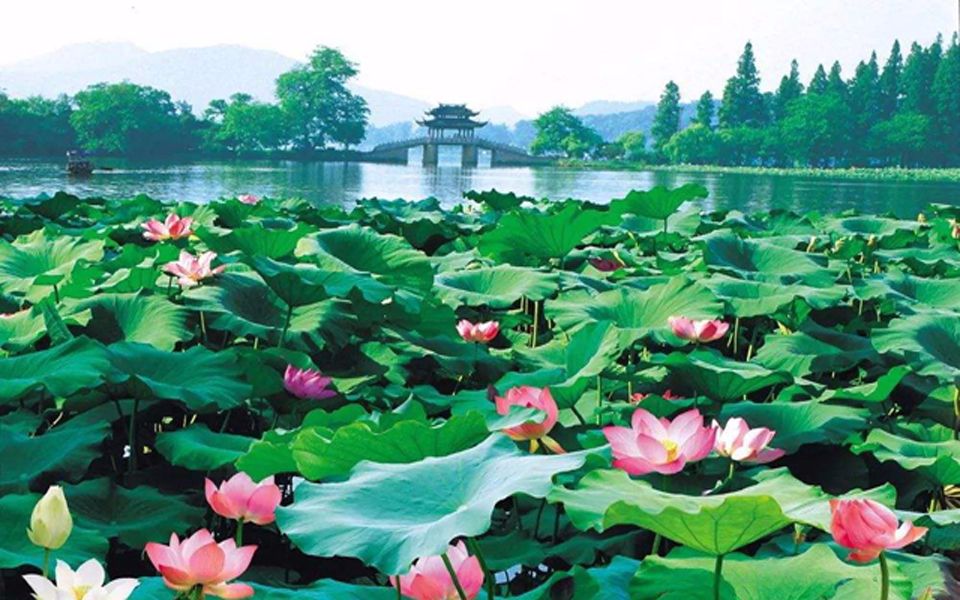
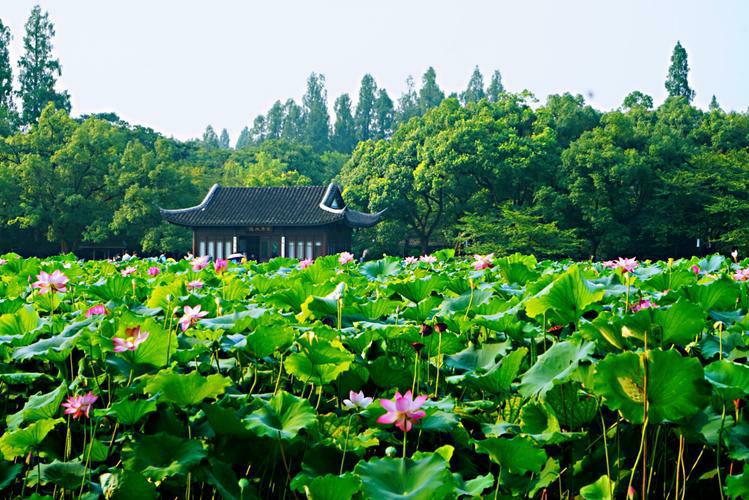
Leifeng Pagoda at Sunset – As the sun dips low, Leifeng Pagoda glows gold against the skyline, casting long reflections on the lake. The sky turns orange, pink, and red, and everything feels painted in warm light.
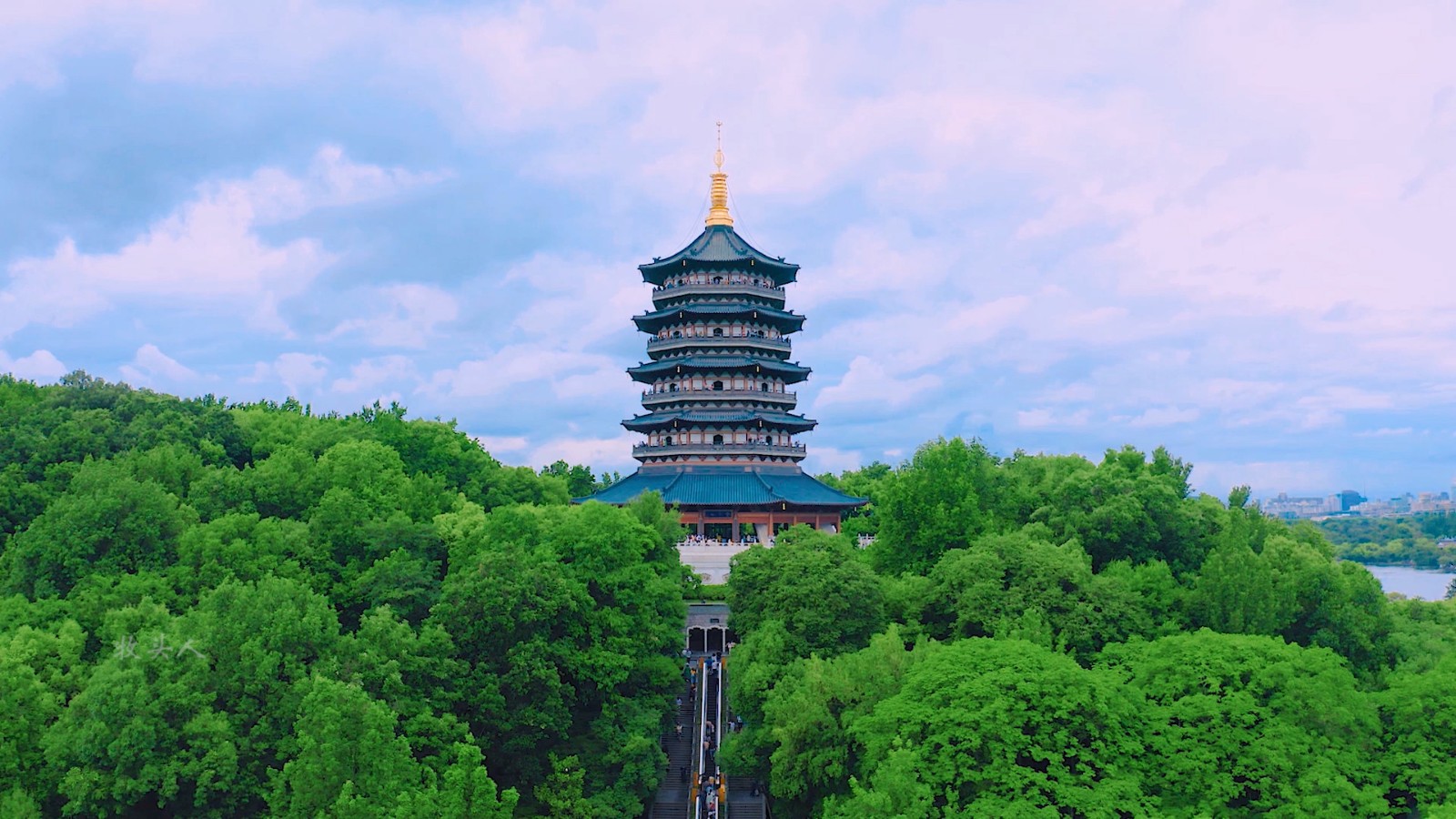
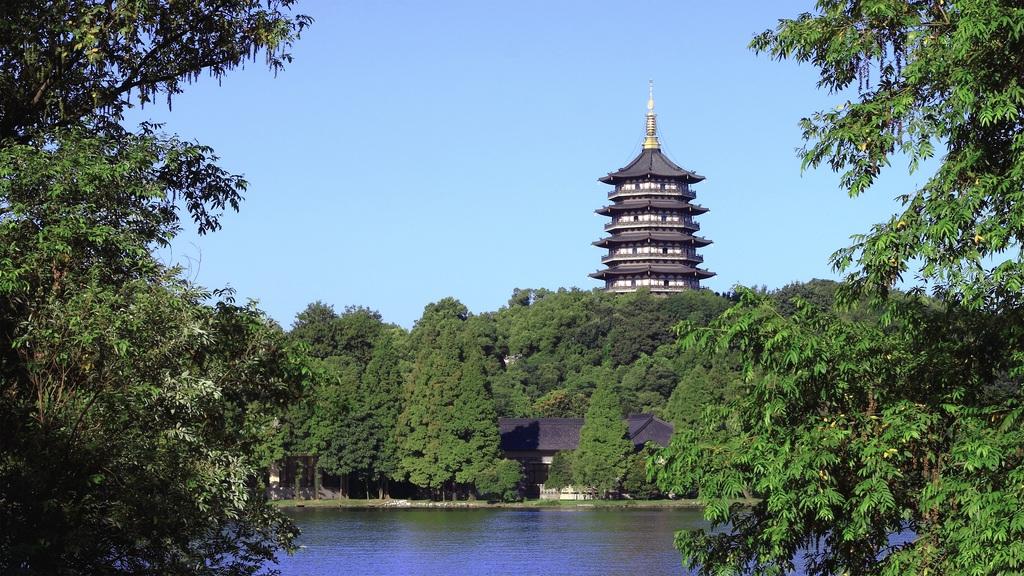
Evening Bells at Nanping Hill – Down by the south shore of the lake, the sound of bells from Jingci Temple floats through the trees each evening, echoing gently across the water and hills.
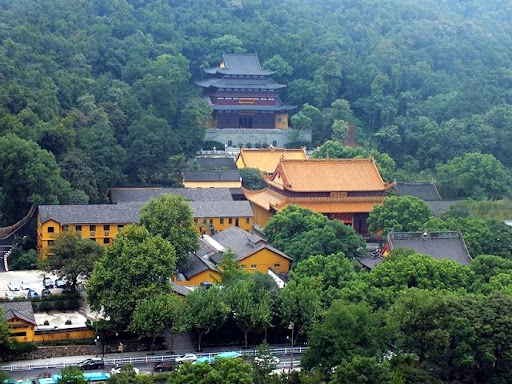
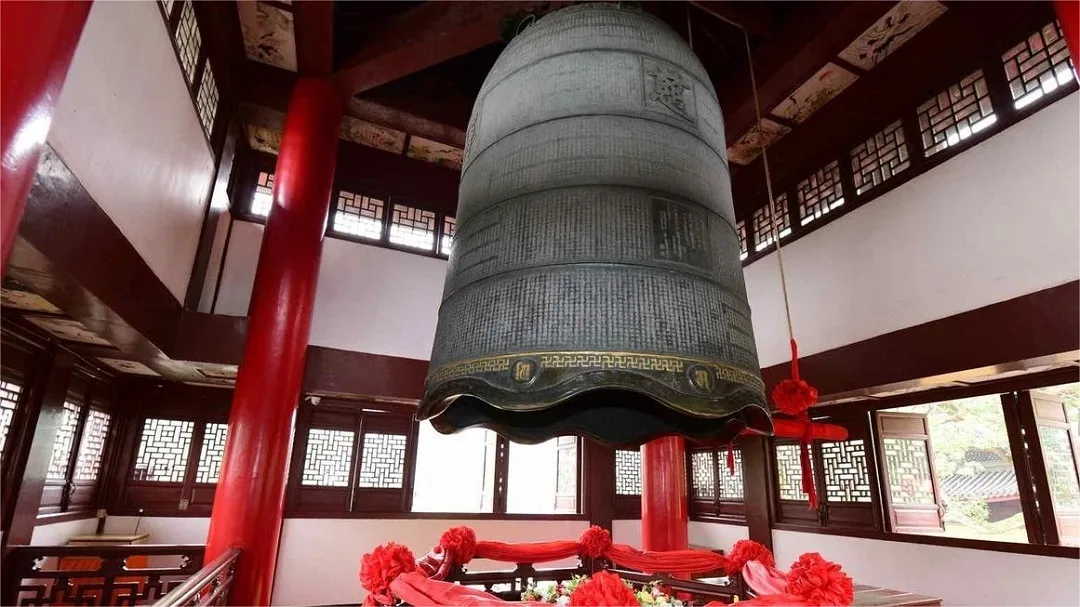
Bamboo Trail at Yunqi – This shaded, serene path runs through thick bamboo groves, with tiny streams gurgling alongside. It's a peaceful escape from the city heat, tucked into the quiet hills just outside the city.
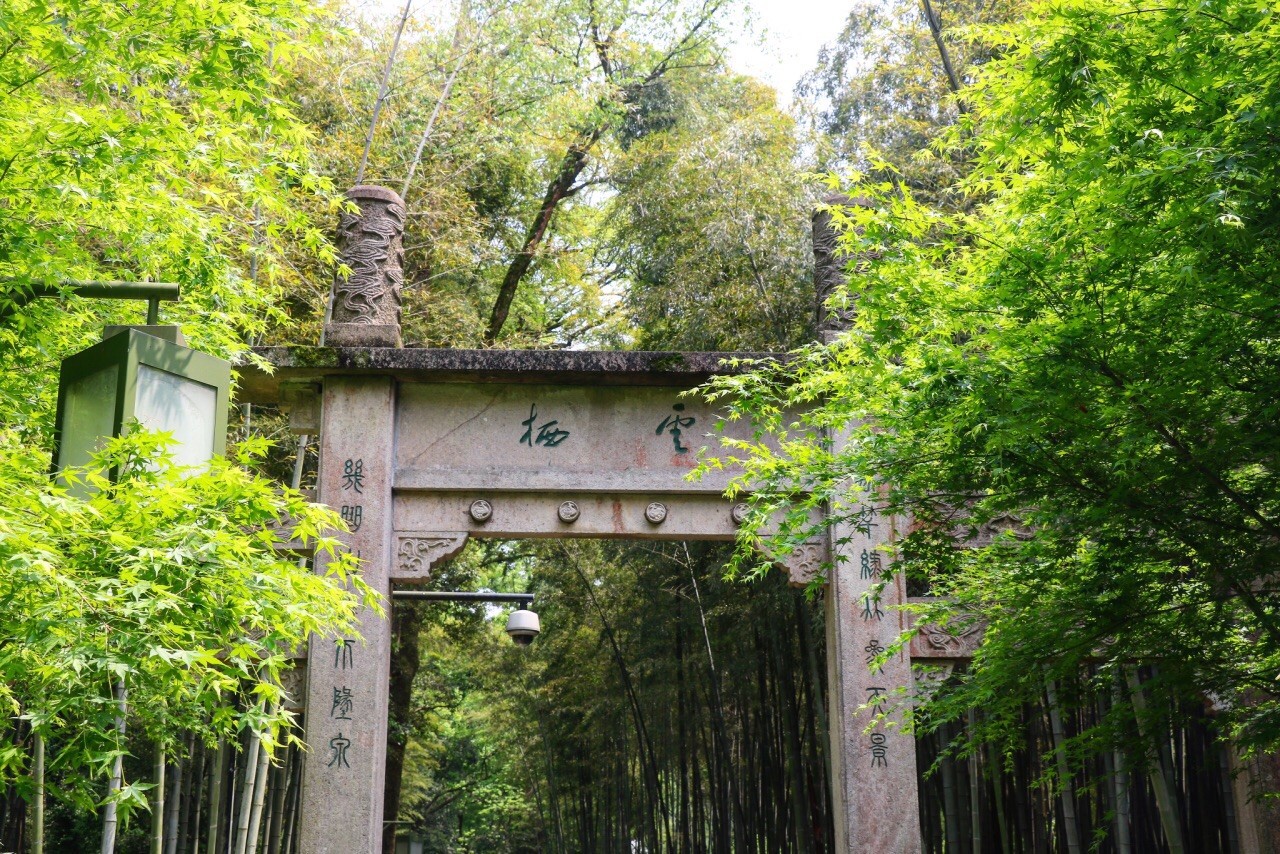
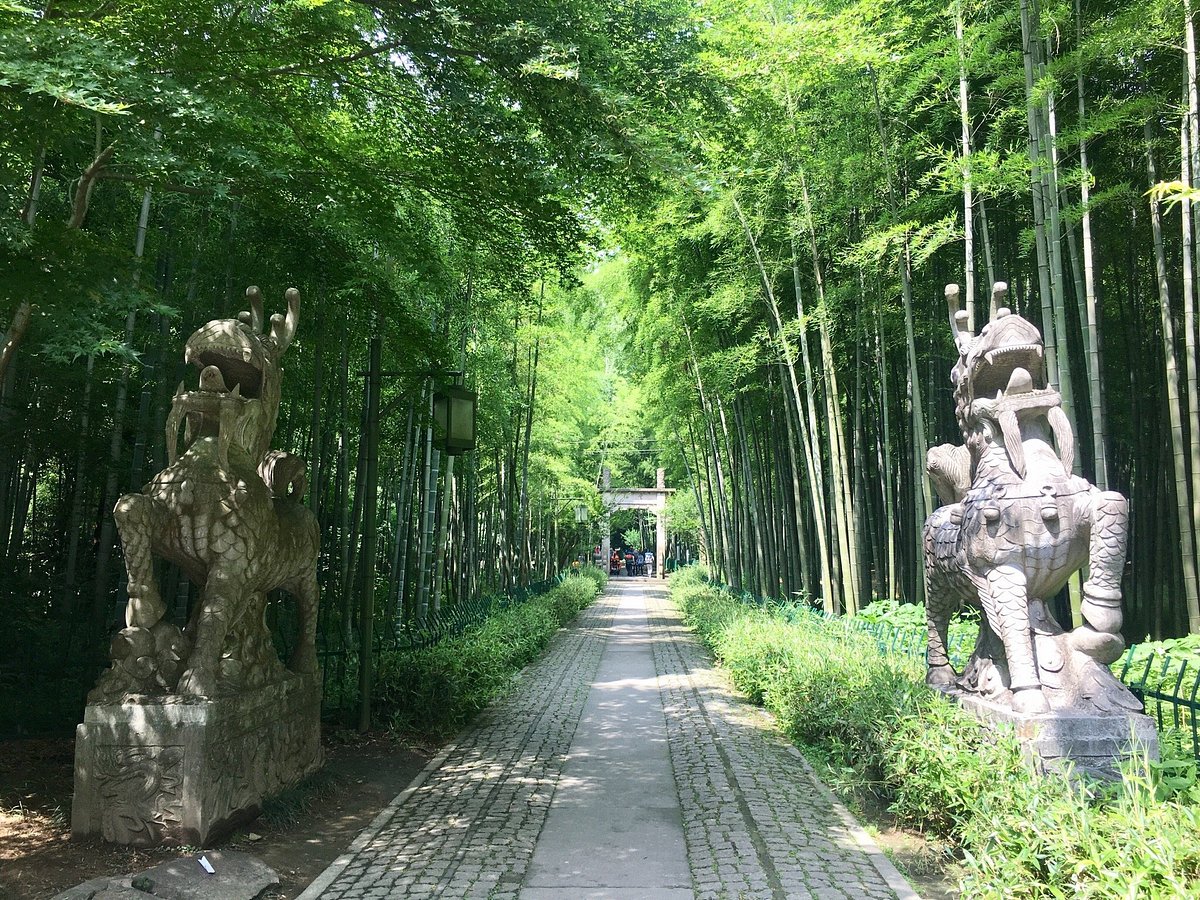
Hangzhou Autumn (September, October, November)
From September to early November, Hangzhou enjoys crisp air, low humidity, and a refreshing breeze, making it one of the most pleasant times to explore the city. Although temperatures are cooler compared to spring, especially with October averaging around 18°C and November dropping to about 12°C, the abundance of sunny days keeps the afternoons comfortably warm. Rain becomes less frequent, and with total rainfall under 300mm across these three months, outdoor activities like hiking, cycling, and sightseeing are especially enjoyable.
What to Wear in Hangzhou Autumn
Comfortable clothing such as light sweaters, hoodies, and long pants are perfect for autumn weather. A lightweight jacket should be enough for early fall, but as the season transitions, thicker outerwear is a good idea, particularly for those visiting nearby water towns where the air can feel cooler.
Seasonal Activities in Hangzhou Autumn
Around the 18th day of the eighth lunar month, the Qiantang River puts on a show with its famous tidal bore. The daytime tide-chasing along the riverbanks is thrilling, and evenings at West Lake under the full moon create a serene contrast. Liuhe Pagoda offers one of the best views for experiencing the power of the river.
West Lake in autumn is draped in gold and crimson. Visit Lingyin Temple to enjoy colorful maple and ginkgo trees. The east end of Bai Causeway is particularly striking with its golden platanus trees. Longjing Road is another scenic route lined with fall foliage.
The scent of osmanthus fills the air throughout Hangzhou during autumn. Drive or cycle along Yanggong Causeway or Hupao Road to catch whiffs of the delicate floral aroma that defines the season.
Scenes of West Lake in Autumn
Moon over the Peaceful Lake in Autumn: This narrow garden stretch along the lake is ideal for relaxing, sipping tea, and watching the moonrise. The serene environment makes it a poetic place to enjoy a quiet evening.
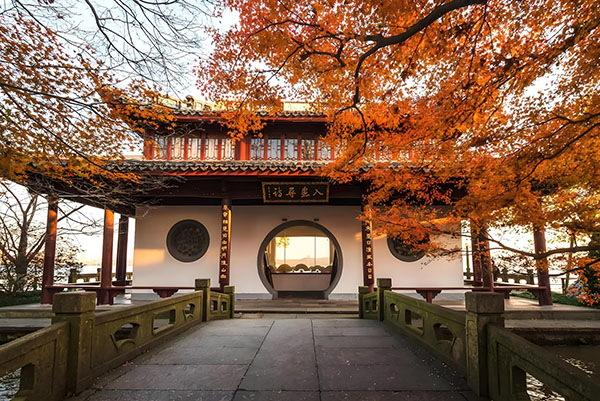
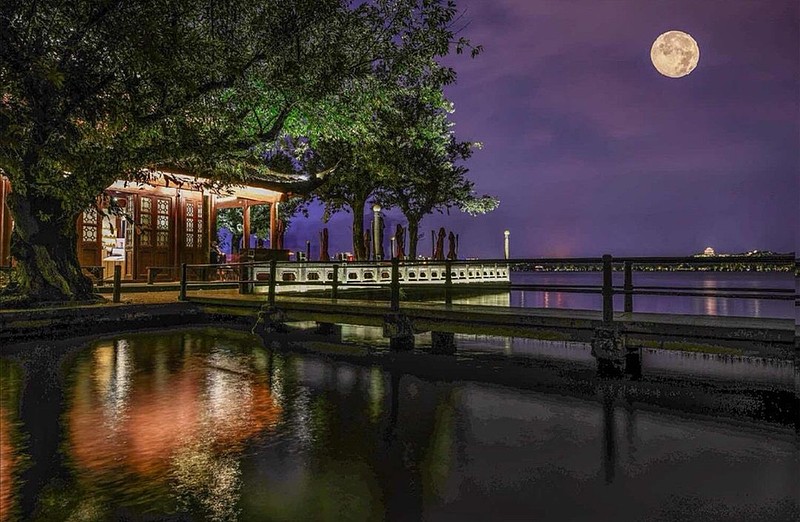
Three Ponds Mirroring the Moon: During the Mid-Autumn Festival, board a boat to the central island of West Lake and admire the three stone pagodas lit under the moonlight. This famous view even appears on the back of the 1 Yuan banknote.
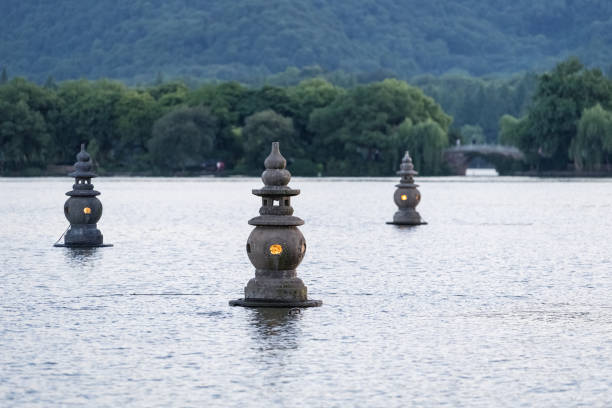
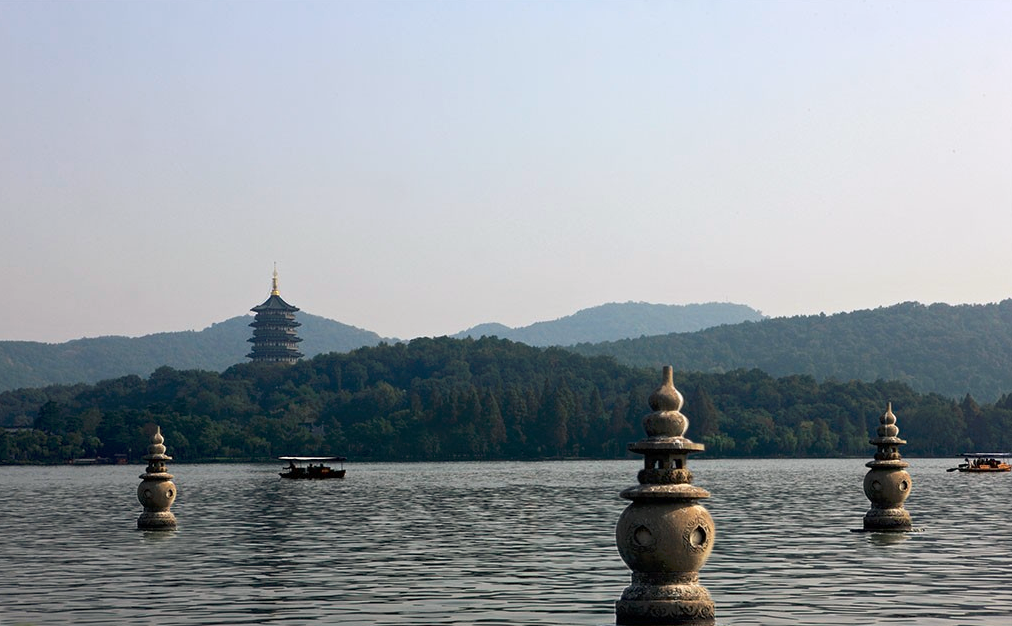
Two Peaks Piercing the Clouds: On clear autumn mornings, the South and North Peaks of Tianmu Mountain appear through drifting clouds, creating an ethereal, dreamlike vista.
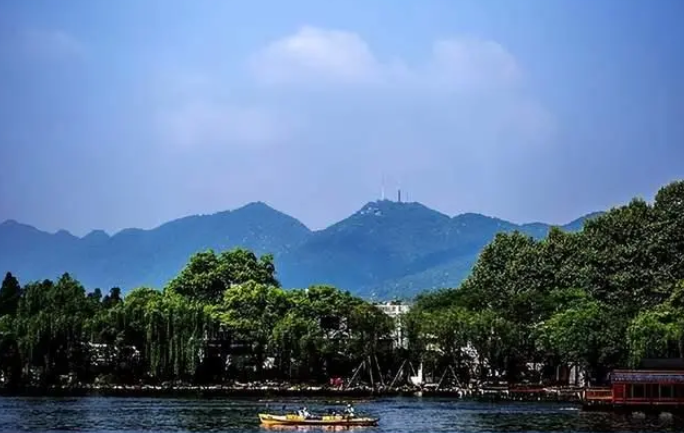
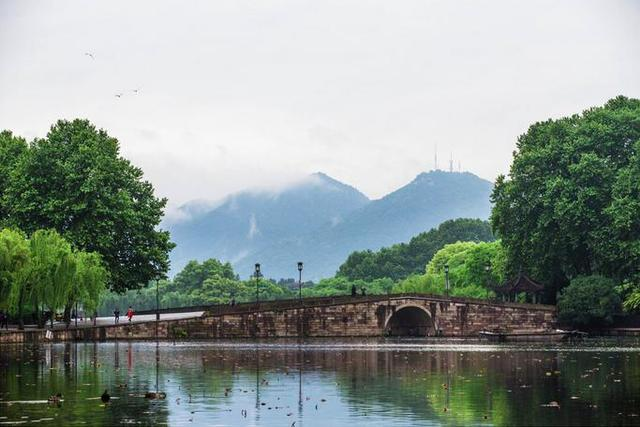
Osmanthus Flower Sea at Manjuelong Village: Nestled between the South Peak and White Crane Peak, this village area is home to thousands of osmanthus trees. In autumn, golden flowers bloom in abundance and their fragrance drifts far and wide, enveloping the landscape in a sweet, nostalgic scent.
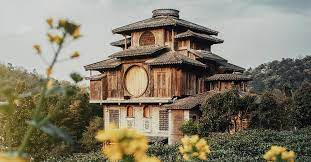

Hangzhou Winter (December, January, February)
From December to February, Hangzhou enters its chilliest season. January is typically the coldest, with average temperatures hovering around 4°C. Though snowfall is not frequent, when it does occur, it blankets the West Lake and nearby hills, turning the city into a peaceful winter wonderland. Rainfall during these months averages around 100 millimeters per month.
What to Wear in Hangzhou Winter
Hangzhou winters are damp and cold, and without central heating, the chill can seep in. Be sure to pack thick outerwear such as down jackets or wool coats. Accessories like beanies, scarves, gloves, and insulated boots are also essential to stay warm, especially during long strolls around the lake.
Seasonal Activities in Hangzhou Winter
In ancient times, it was said that winter reveals the true beauty of West Lake. The snow-dusted Broken Bridge, one of its ten most iconic views, is particularly romantic during this season.
For nature lovers, places like Gushan, Lingfeng, and Chaoshan offer a chance to see plum blossoms blooming in red and white, spreading their fragrance through the crisp air.
A visit to Song Dynasty Town during winter brings both entertainment and cultural richness. The immersive show “The Romance of the Song Dynasty” is performed year-round, and winter may coincide with traditional festivals like the Lunar New Year temple fair.
Scenes of West Lake in Winter
Lingering Snow on the Broken Bridge: After a snowfall, this historic stone bridge takes on a fairytale appearance. From a distance, it resembles a silver ribbon laid gently over the lake.
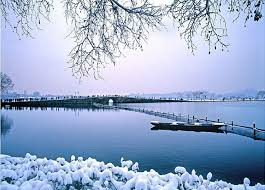
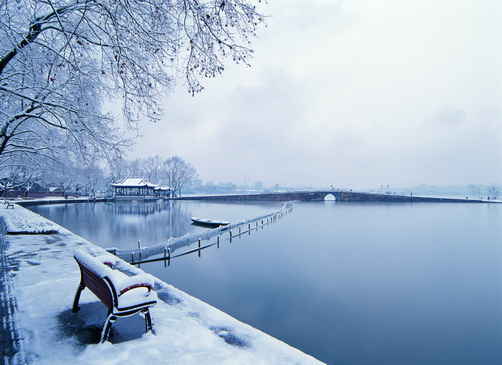
Plum Blossoms on Gushan Mountain: This island-like hill is encircled by water and known for its seasonal plum trees. Cultural spots such as Wenlan Pavilion, Zhejiang Museum, and Xiling Seal Society make it a blend of natural beauty and heritage.
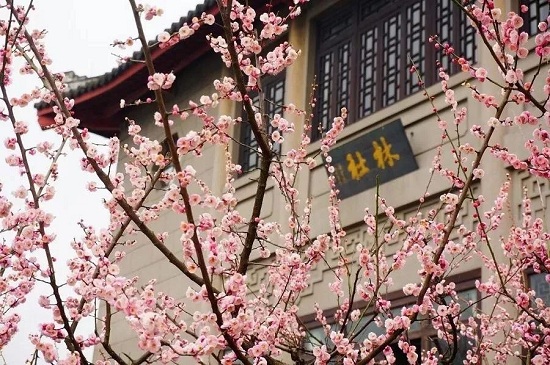
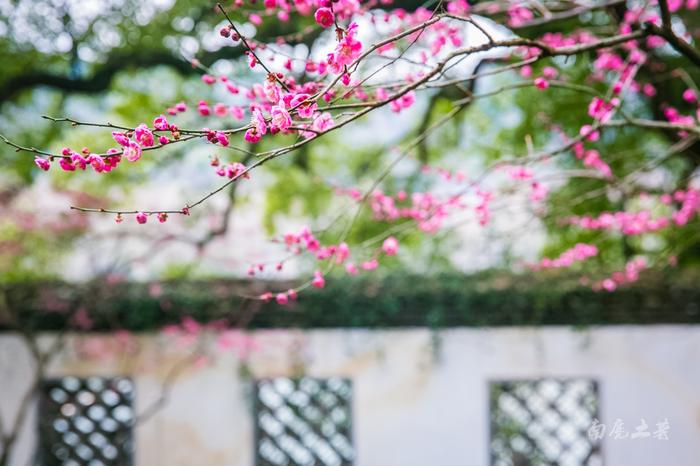
Breezy Heights of Wu Hill: With rock formations, flowing springs, and hidden caves, Wu Hill invites exploration. The City God Pavilion at the summit offers sweeping views of the Qiantang River. Afterward, visitors can descend into nearby historical areas like Hefang Street for snacks and souvenirs.
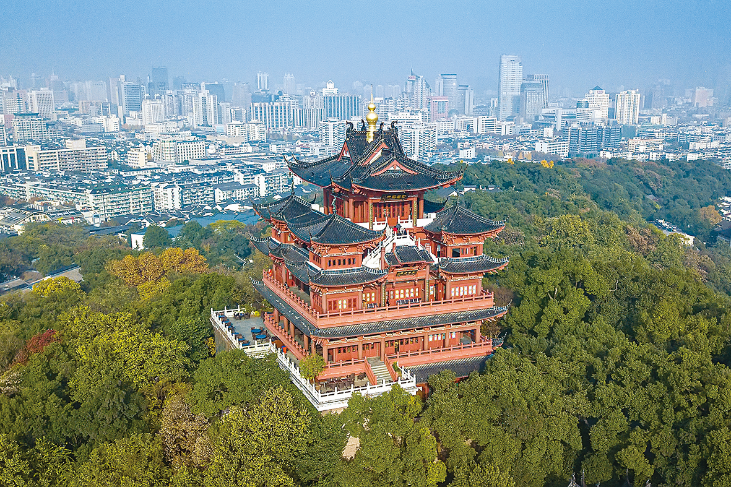
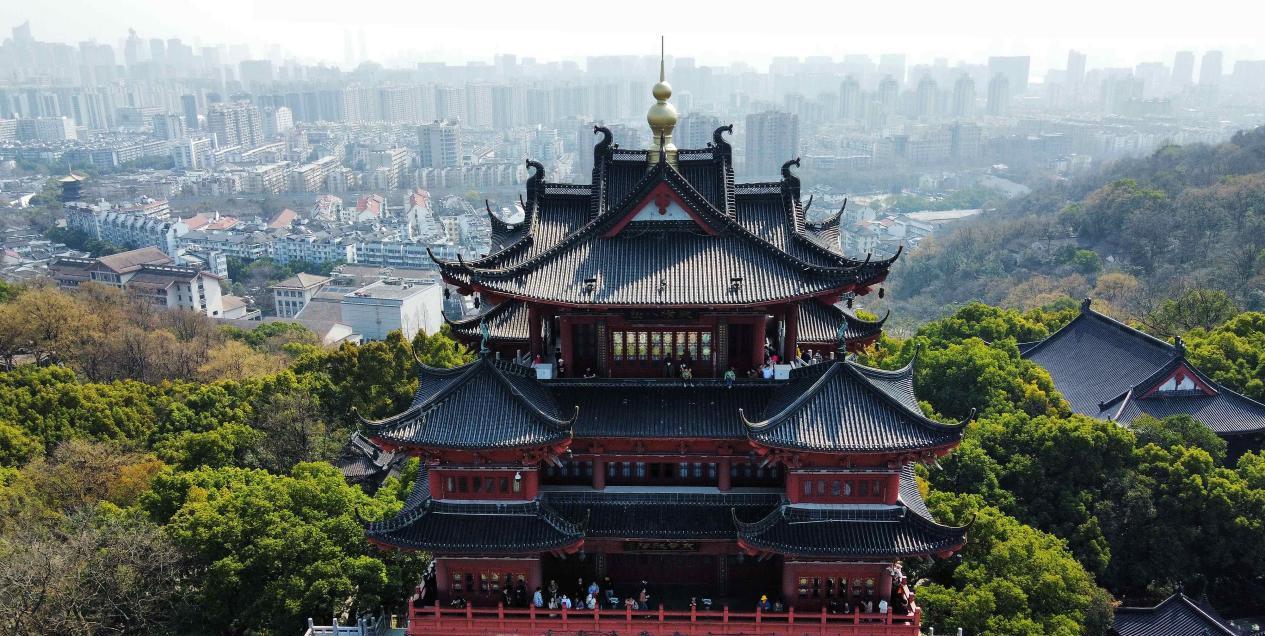
Festivals in Hangzhou
January
New Year’s Day (Jan 1)
Hangzhou greets the new year with a quiet charm. West Lake’s pathways like Broken Bridge and Su Causeway are perfect for an early morning walk, where mist hangs gently over the water and willow branches sway in the crisp winter breeze. Locals enjoy this serene time by jogging, sipping tea in lakeside teahouses, or simply enjoying the clear, quiet air before the tourist season begins.
Laba Festival (8th day of the 12th lunar month)
This traditional Buddhist holiday marks the day when the Buddha attained enlightenment. At ancient temples like Lingyin, monks prepare and offer free bowls of Laba porridge made with rice, nuts, and dried fruits. The spiritual atmosphere, incense smoke, and sound of chanting draw visitors looking to experience a slice of Hangzhou's religious culture in an authentic setting.
February
Chinese New Year (Spring Festival)
The most important festival in China transforms Hangzhou into a sea of red. Streets like Hefang and Qinghefang are decorated with lanterns and spring couplets. Families gather for reunion dinners, and major tourist spots hold festive performances like dragon and lion dances. Though some shops may close for a few days, the air is filled with joy, firecrackers, and a strong sense of tradition.
Lantern Festival (15th day of the lunar new year)
Marking the end of the Spring Festival season, this night is all about lanterns and light. Song Dynasty Town becomes a fairytale scene with illuminated lanterns in all shapes and sizes. Children carry paper lanterns, and families enjoy sweet glutinous rice balls called tangyuan. At West Lake, the reflections of lanterns on the water create a dreamy and romantic atmosphere.
March
Flower Festival (Huazhao Festival)
This traditional holiday celebrates the arrival of spring and the birthday of flower deities. At Xixi Wetland, young people dressed in flowing Hanfu gather for flower-worshipping ceremonies, boat rides, and ancient-style music performances. It's like stepping into a living painting from the Tang Dynasty, filled with color and grace.
Blossom Season
March signals the full bloom of cherry blossoms and tulips across Hangzhou. Prince Bay Park (Taiziwan) is one of the most popular places to see them. Couples often come here for romantic photos under pink canopies, while families and photographers arrive early to claim the best picnic spots. The scent of spring fills the air, and everywhere feels vibrant and alive.
April
Qingming Festival (Tomb-Sweeping Day)
Besides honoring ancestors, this is also a season for spring outings. Many locals visit cemeteries in the morning and spend the afternoon outdoors. Jiuxi and Yang Gong Causeway become popular with walkers and cyclists who come to enjoy blooming flowers, gurgling creeks, and birdsong. The mood is quiet but hopeful, reflecting a respect for both the past and the present.
Longjing Tea Festival
Held in the scenic tea-growing villages of Longjing and Meijiawu, this festival celebrates Hangzhou’s most famous product: Dragon Well green tea. Visitors can watch tea farmers hand-pick tender leaves and roast them in large iron pans using ancient techniques. Tasting freshly brewed tea on a bamboo bench, surrounded by lush hills and spring breezes, is a highlight for anyone visiting Hangzhou in April.
May
Labor Day Holiday (May 1–5)
This is one of China’s biggest public holidays, and Hangzhou becomes a hotspot for domestic tourists. Expect crowds at major sites like Leifeng Pagoda, the Broken Bridge, and West Lake cruises. Streets are alive with music, street performers, and food vendors. If you’re looking for more peace, head to Tiger Spring or Yunqi Bamboo Trail where the crowds thin and the nature shines. Evenings are perfect for a stroll through West Lake Musical Fountain or grabbing a tea at a rooftop spot near Hubin Road.
China International Cartoon and Animation Festival
Hosted in Binjiang’s White Horse Lake area, this is China’s largest and most lively animation expo. The entire district turns into a colorful wonderland with parades, cosplay contests, and themed exhibitions. It draws in fans of anime, comics, and games from across Asia. Even if you’re not a hardcore fan, just walking around among the creative costumes and energy is pure fun.
June
Dragon Boat Festival
Held on the fifth day of the fifth lunar month, this is one of Hangzhou’s most traditional holidays. Head out to riverside areas like Fuyang or Jiande to catch the dramatic dragon boat races where locals cheer for their neighborhood teams. Before or after the races, try sticky rice dumplings called zongzi, which are filled with meats, beans, or sweet fillings and wrapped in bamboo leaves. You’ll also see mugwort and calamus hung on doors as symbols of protection.
Rainy Season (Meiyu)
The start of summer in Hangzhou is also the beginning of the Meiyu or plum rain season. Frequent light rains fall across the city, and the air becomes lush and fragrant. West Lake is at its most poetic this time of year. Thin mist hovers above the water, trees drip with dew, and the landscape resembles an old ink-wash scroll. Bring an umbrella and embrace the moody beauty of early summer.
July
West Lake Lotus Season
By mid-July, the lotus flowers around West Lake reach full bloom. Quyuan Fenghe (Breeze-ruffled Lotus at Quyuan Garden) is the most iconic viewing spot. The ponds are covered in green pads with pink and white flowers swaying gently in the breeze. Early morning is the best time to go, when the air is cooler and the petals are open. It’s a favorite season for photographers, painters, and romantic morning walks.
August
Qixi Festival (Chinese Valentine’s Day)
Celebrated on the seventh day of the seventh lunar month, this romantic holiday brings couples to spots like Bai Causeway and Orioles Singing in the Willows. Lakeside restaurants offer special menus for the night, often with flowers, candles, and heart-shaped desserts. The dreamy evening air and moonlit water make it a favorite date night for locals and visitors alike.
Qiantang River Tidal Bore Begins
Starting in mid to late August, the Qiantang River’s famous tidal bore begins to rise. In places like Yanguan in Haining or Wenyan in Xiaoshan District, you can watch the river’s water suddenly surge forward like a moving wall. It’s a rare natural phenomenon that’s both thrilling and unique to this region. Locals host mini fairs and food stalls near the viewing areas, turning it into a festive community event.
September
Mid-Autumn Festival: Best time for moon-gazing—locals head up Baoshi Hill or enjoy osmanthus wine while viewing the full moon over West Lake.
Qiantang Tidal Bore Festival: Peaks near the Mid-Autumn Festival. Expect traditional music, snacks, and a spectacular natural show.
West Lake Osmanthus Festival: the osmanthus is the city's official flower so the blooming of this beautiful natural creation is celebrated during September and October of every year at locations such as the Hangzhou Arboretum, Man Jue Long Village and Man Long Gui Yu Park.
China International Qiantang Tide-Watching Festival: visitors come from far and wide to witness this unique and fascinating lunar-influenced phenomenon that brings waves several metres in height to the Qiantang River. Traditional folk dancing displays accompany the proceedings.
October
National Day Golden Week (Oct 1–7): Huge domestic crowds. Consider exploring less-visited areas like Yunqi Bamboo Trail or Xixi Wetland.
Hangzhou Marathon: Runners pass West Lake, the Grand Canal, and Qianjiang River—ideal for active travelers who want scenery with their steps.
West Lake International Fireworks Show: is a giant fireworks display that's held at the West Lake and features the best firework creations from around the globe.
Mid Autumn Festival: on the 15th day of the eighth lunar month, Hangzhou's locals celebrate this important lunar calendar festival with traditional dancing and singing and the preparation and consumption of crescent moon-shaped cakes.
Hangzhou Silk Festival: aiming to promote silk as a material for creating clothing garments, home furnishings and lifestyle products and to reinforce Hangzhou's status as one of the world's premier silk producing cities.
November
Sweet Osmanthus Festival: Manjuelong village and Lingyin’s trails are filled with the scent of golden blossoms—perfect for slow strolls and warm photos.
Autumn Foliage Viewing: Jiuxi and Yang Gong Causeway become flame-colored—great for quiet nature escapes or landscape photography.
West Lake Fair: beginning in October and running into November, this annual event is a cultural celebration that has been a feature of the city since 1929. Both the International Fireworks Show and the Silk Festival are a part of this event.
December
West Lake Winter Charm: Sparse lotus leaves, serene water, and occasional snow turn the lake into a Zen-like wonder.
Christmas Season: Though not traditional, malls like Hubin Yintai and MixC Mall go all-in on decorations, lights, and sales—urban Hangzhou flair meets global holiday style.
Visa
Foreign visitors have to obtain a visa before entering Hangzhou. You can apply for the visa in the Consulate of P. R. China in your country. Alternatively, you can obtain the visa through a travel agency. Special fast applications can be generally completed within 24 hours.
From Jan. 30, 2016, 144-Hour Visa-Free Policy is implemented to facilitate passengers to enjoy a visa-free stay up to 144 hours when making an international transfer via Xiaoshan Airport. Read details about 144-Hour Visa-Free Transit.
Useful Numbers:
Fire: 119
Police: 110
Traffic Emergency: 122
Ambulance: 120
Tourism Complaint: 87030886
Calling for a Taxi: 28811111
Way Inquiry (Downtown area): 1606000
Weather Forecast: 96121
China Mobile Customer Hotline: 10086
China Unicom Customer Hotline: 10010
China Telecom Customer Hotline: 10000
International long-distance telephone: Please dial 00 + country code + city code + telephone number
Payment
1. Mobile Payment Dominates
Hangzhou is home to Alibaba, so mobile payment is everywhere. Most locals use Alipay or WeChat Pay, even for buying fruit at a street stall or paying for a taxi.
For international travelers:
You can link your foreign credit or debit card (Visa, Mastercard, etc.) to:
Alipay: Download the app, choose “Tour Pass” or “International Version,” and add your card.
WeChat Pay: Use the international setup and bind your card under “Wallet.”
It’s smart to set this up before your trip to avoid hassle at the airport or hotel.
2. Cash Still Works
Big hotels, major restaurants, and train stations usually accept cash.
Small shops and local vendors often only accept QR code payments.
Withdraw clean, crisp RMB bills from an ATM just in case.
3. Credit Cards Are Rarely Accepted
Unless you’re in a luxury hotel, a major coffee chain, or an Apple Store, credit cards won’t get you far in Hangzhou. Don’t rely on them as your main payment method.
4. Travel Tips
Apple Pay and Google Pay usually don’t work.
Always carry a power bank—your phone is your wallet.
Some ticket offices and museums accept only digital payment.
If you want to use food delivery apps or rent bikes, you’ll need WeChat or Alipay.
Recommended Setup for Tourists
Use Alipay or WeChat with your foreign card as your primary payment method
Carry some cash (¥100–300 RMB) just in case
Download offline maps and take a screenshot of your payment QR code in case of weak internet
Transportation
1. Getting to Hangzhou, China
The easiest way to travel from Vietnam to Hangzhou is by air. While there are currently no non-stop flights from Vietnam offered by Vietjet, many travelers opt for routes that include layovers in major Chinese cities such as Guangzhou, Shenzhen, or Hong Kong. Depending on your departure city, the flight duration typically ranges between 2 and 4 hours.
Hangzhou Xiaoshan International Airport is well-connected, serving flights from over 100 cities within China and around 40 cities internationally. For the best value, consider flying into a nearby hub in China first and then transferring to a domestic flight to Hangzhou. With promotions, fares can be as low as ?490,000, though the average round-trip ticket may range from ?2 million to ?10 million, depending on the airline and season.
2. Getting around Hangzhou
Navigating Hangzhou is straightforward thanks to its efficient and varied public transportation system. You can explore the city comfortably by:
Metro – Fast and convenient, especially for visiting popular attractions.
Public Buses – A budget-friendly way to get around, with routes covering most areas.
Taxis – Widely available and useful for short or direct trips.
Bicycles – Hangzhou's public bike-sharing system is extensive and perfect for lakeside rides.
In some scenic spots, you can also hop on a sightseeing train or take a relaxing boat ride—ideal for enjoying West Lake’s serene beauty and capturing the essence of the city.
Internet Access
Many Western websites and apps such as Google, Instagram, Facebook, YouTube, and WhatsApp are blocked in mainland China due to the national firewall. If you rely on these platforms for navigation, communication, or social sharing, it is essential to download and set up a reliable VPN before you arrive. Not all VPNs work consistently in China so be sure to choose one with a good track record and test it in advance. Also consider downloading alternative local apps like Baidu Maps or WeChat to help you stay connected within China.
Safety
Hangzhou is widely regarded as one of the safest cities in China for both domestic and international travelers. Whether you are a solo adventurer, a couple, or traveling with family and kids you can explore the city with confidence. Violent crime is extremely rare and locals are generally friendly and helpful. That said it is still smart to take standard precautions such as keeping an eye on your belongings in crowded areas, avoiding unlicensed taxis, and storing important documents securely. The city is also well lit and active even at night especially around West Lake and commercial areas.
Wechat: Chinaprivatetour
24 Hours Hotline:
+86 137-3541-1378
* Authentic Experiences: Genuine local experiences that immerse you in the true essence of Hangzhou and beyond.
* Safety First: Highest safety standards with secure activities and reliable transportation.
* Customizable Tours: Flexible itineraries tailored to your interests and needs.
* Local Expertise: In-depth knowledge of Hangzhou and China, offering exclusive insights.
* Professional Guides: Licensed bilingual guides with over 5 years of experience.
* Comfortable Travel: Experienced drivers and well-maintained vehicles for a smooth journey.
* Sustainable Tourism: Commitment to responsible tourism and supporting local communities.
* Customer-Focused: Personalized service and continuous improvement based on your feedback.
* Free Cancellation: Cancel up to 24 hours before travel for flexibility and peace of mind.
* 24/7 Support: Round-the-clock assistance for any questions or help needed.
1 to 1 tailor-made service from our professional travel advisors for the most sophisticated
Constantly excellent reviews for attraction, hotel and service Competitive price
Local experts provide quality tours Best selected knowledgeable local guides Authentic local restaurants
7*24 hours available to create you a worry-free tour. No Hidden Fees and absolutely no pressure to buy. Secured








Copyright © 2017 Hangzhouprivatetour.com All rights reserved.